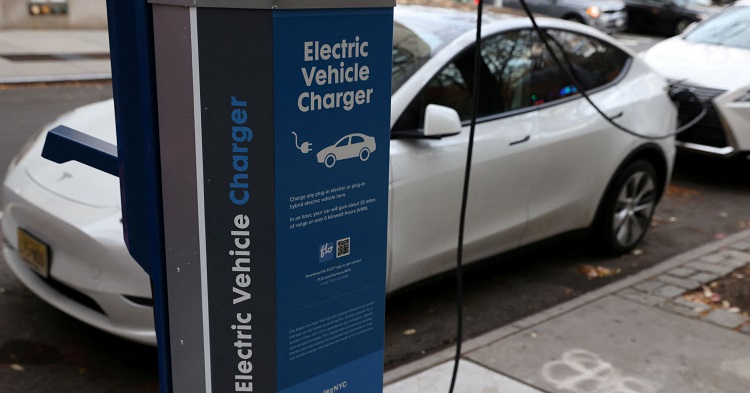Recent reports unveil a recalibration in the automotive industry as manufacturers reel back electric vehicle (EV) production amidst a decline in consumer demand. What once seemed like an era of boundless potential for EVs is now confronting a more tempered reality, signaling a pivotal shift in the automotive landscape.
In the heyday of EV fervor, automotive giants dazzled investors with ambitious sales projections and optimistic growth targets. But this enthusiasm is now giving way to pragmatism, with companies like Ford Motor, General Motors, Mercedes-Benz, Volkswagen, Jaguar Land Rover, and Aston Martin retreating or postponing their electrification plans, as reported by CNBC.
While EV sales are poised for continued growth, there’s an undeniable shift in the winds. Quarter four EV sales recorded a 40% year-over-year increase, a solid figure by all means, yet notably lower than the previous quarters’ performances. For instance, Q3 boasted a 49% surge, while Q4 of 2022 saw a remarkable 52% rise.
A multitude of factors is contributing to consumer reluctance towards embracing EVs fully. Unique challenges such as limited driving range compared to traditional gas-powered vehicles and the higher upfront costs are weighing heavily on potential buyers. This hesitancy is particularly pronounced amidst the backdrop of soaring inflation rates in recent years.
Despite the consensus that EVs hold the key to the automotive future, consumers are demonstrating a preference for hybrid vehicles in the present. Morgan Stanley analyst Adam Jonas highlights this trend, noting that hybrid sales in the US are outpacing EVs by a factor of five.
Jeff Parent, COO of AutoNation, acknowledges the inevitable rise of EVs in the passenger automobile sector but cautions about the rough road ahead. He emphasizes the current hurdles facing EV adoption, suggesting a bumpy journey for the next three to four years.
The retreat from lofty EV goals among automakers signals a recalibration towards aligning with consumer sentiments. General Motors CEO Mary Barra’s recent remarks to the Detroit Automotive Press Association underscore this shift, indicating a willingness to adapt to consumer preferences rather than dictate them.
The growing consensus among automakers towards embracing the Tesla standard reflects a realization that charging infrastructure remains a significant barrier to widespread EV adoption, as noted by Mark Wakefield of AlixPartners’ automotive practice.
Calls from thousands of car dealerships urging the Biden administration to temper its push for EV adoption highlight the disconnect between government mandates and current market realities. While the future holds promise for EVs, there’s a pressing need for patience to allow technology, affordability, infrastructure, and consumer confidence to catch up.
In conclusion, the era of unbridled EV enthusiasm is fading, giving way to a more measured approach as automakers and consumers navigate the complex terrain of the automotive future.
